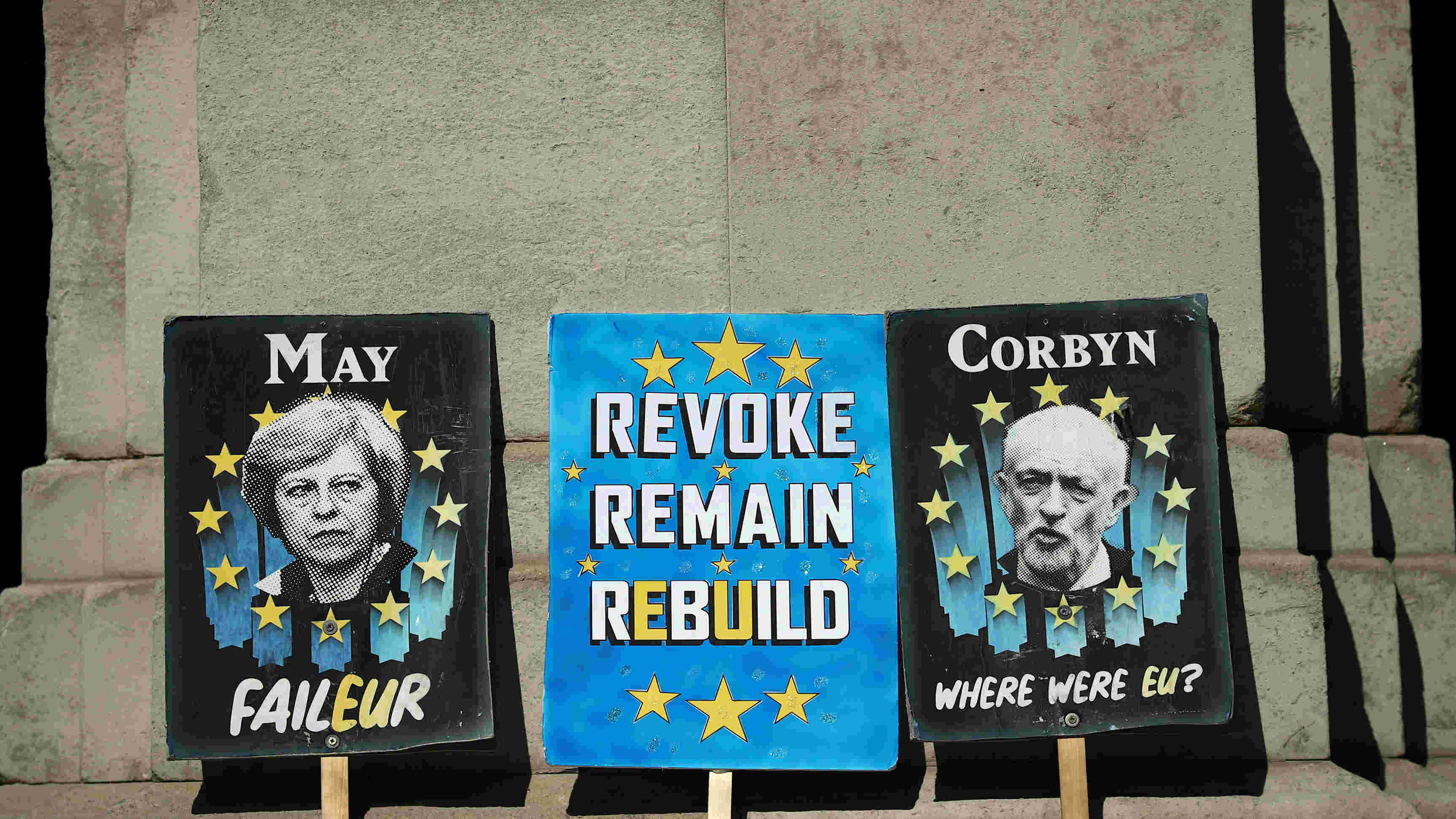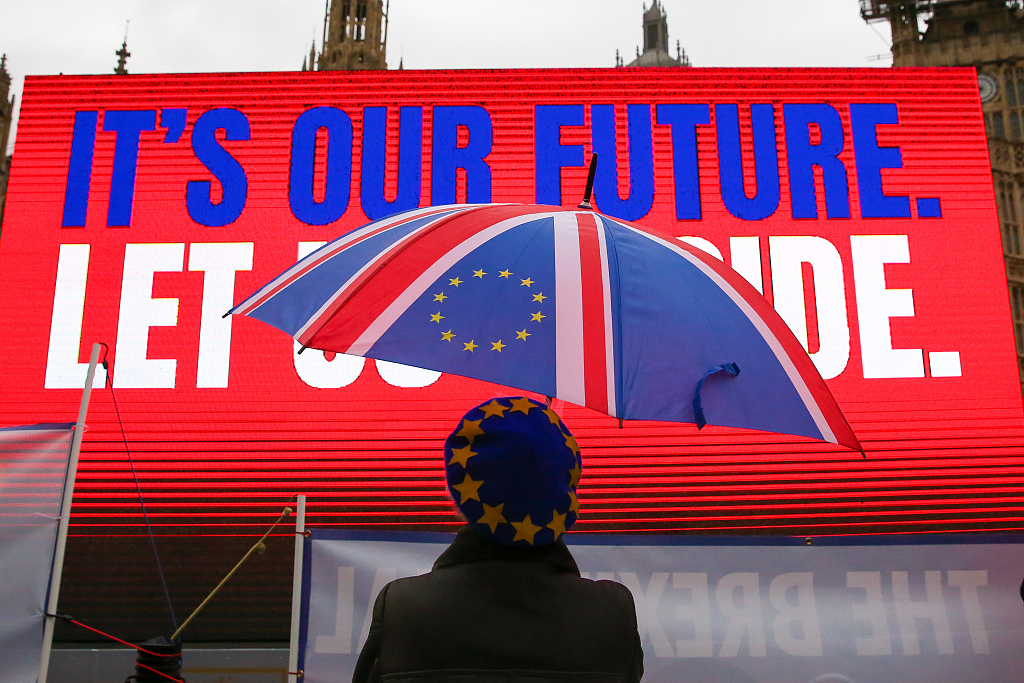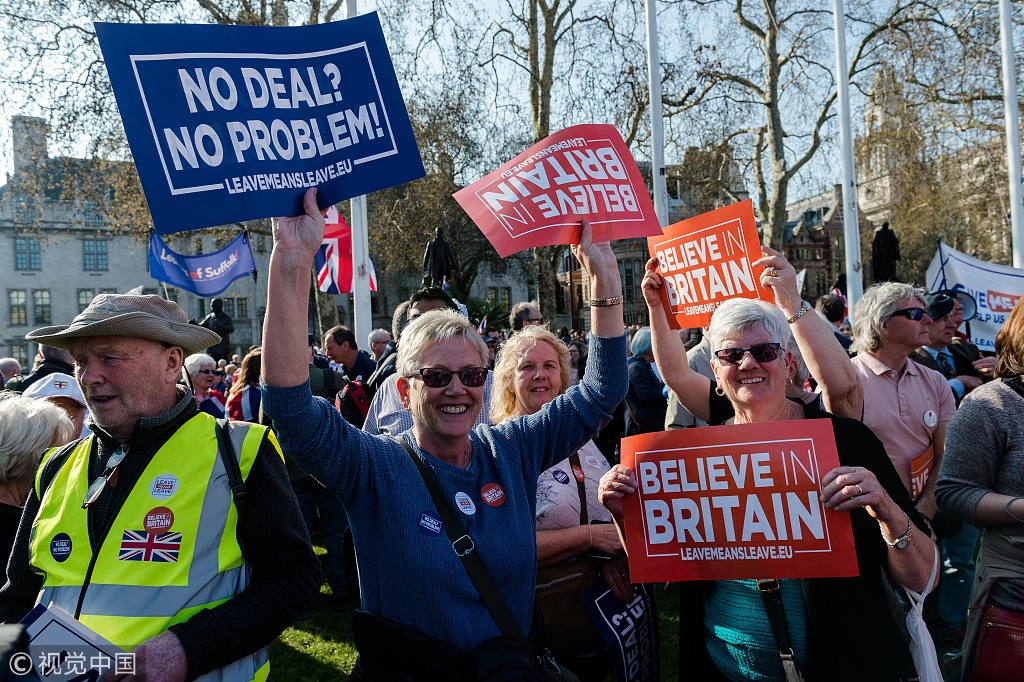

Editor's note: Chris Deacon is a postgraduate researcher in politics and international relations at the University of London and previously worked as an international commercial lawyer. The article reflects the author's opinion, and not necessarily the views of CGTN.
The UK’s opposition Labour Party is currently reviewing its policy in relation to Brexit. This policy has, up to now, been somewhat confused and contradictory. Indeed, many have accused Labour of deliberately remaining ambiguous on the issue – but, is this about to change?
The policy Labour adopted at its conference last year was to fight against what was described as a “damaging Tory Brexit” – i.e. the version of Brexit promoted by the governing Conservative Party. However, they did not oppose the idea of Brexit, per se. Rather, they advocated an alternative version of Brexit (which, in reality, was not overly different from the Tory proposals).
The question for Labour, however, has always been how it plans to achieve this. Labour’s plan was to seek a general election to implement this version of Brexit and, if this were not possible, to advocate the holding of a second referendum, possibly with the option to remain in the EU being on the ballot paper.
This last element of the policy has been the more controversial. This is because, for many, advocating the holding of a second referendum is akin to advocating for the cancellation of Brexit. And, indeed, within the Labour Party, those promoting such a referendum are also those who still want the UK to remain in the EU and hope to achieve this through holding another vote.

An Anti-Brexit protester seen holding an umbrella protesting outside the Houses of Parliament, January 15, 2019. /VCG Photo
At the same time, however, there is a vocal minority within Labour – particularly those MPs who represent areas of the country that voted in favour of Brexit – who have protested vehemently against the idea of a second referendum, suggesting this would be a betrayal of the original vote.
Until now, these Labour figures have been victorious in keeping the party’s position ambiguous – neither accepting the Conservatives’ proposals for Brexit, nor promoting a second referendum in all circumstances. This fence-sitting position was not so successful among the electorate, however.
In the recent European elections, Labour was punished by voters for not taking a clear position on Brexit. As the majority of Labour supporters are in favour of remaining in the EU, Labour did particularly badly with such voters, many of whom defected to the Liberal Democrats, who had adopted a position of unqualified support for a second referendum and remaining in the EU.
This has prompted some within Labour to promote a shift in policy to offer unqualified backing for a second referendum – that is, advocating another public vote on Brexit in all circumstances, regardless of the deal on offer or whether the Conservatives or Labour are in power – and supporting the UK choosing to remain in the EU in that referendum.
There were rumors on Wednesday morning that Jeremy Corbyn – leader of the Labour Party – was poised to shift the party’s policy in this direction. Almost immediately, however, those within the party opposing such a move wrote to Corbyn to urge him not to make such a move, calling the prospect of another referendum “toxic”.

Pro-Brexit supporters gather on Parliament Square in central London for the "Leave means leave" rally in London, UK, March 29, 2019. /VCG Photo
Corbyn had earlier told Labour MPs that the party should support any Brexit deal being put to a public vote. This could be interpreted as advocating a second referendum in all circumstances, but, in fact, a close examination of the wording shows it still accords with the party’s existing policy. A “public vote”, after all, could be seen as including a general election.
Corbyn has said that he will now consult trade unions – a major Labour stakeholder – over the coming days in order to understand current sentiment on this issue. His own opposition to a second referendum is well known – indeed many believe he supports Brexit in his heart of hearts – but Corbyn will also be driven to some extend by the party’s electability. The European elections put this line of thought front and center.
The hard truth for the Labour leadership is that both the public and internal party figures are growing tired of the “constructive ambiguity” that has been promoted thus far. It simply will not be possible for Labour to keep everyone happy and a day of reckoning will come eventually.
We could well see a shift in the coming months: A new Conservative Prime Minister advocating the prospect of a damaging no-deal Brexit could allow Labour some room to shift to advocating a second referendum so as to prevent this eventuality. While still upsetting some within the party, it would be easier for the leadership to justify such a move in this context.
Labour’s policy, therefore, will likely hinge on how the new prime minister pursues Brexit once he gains power. This will set the context for any changes in Labour’s policy too.
(If you want to contribute and have specific expertise, please contact us at opinions@cgtn.com.)

Copyright © 2018 CGTN. Beijing ICP prepared NO.16065310-3
Copyright © 2018 CGTN. Beijing ICP prepared NO.16065310-3